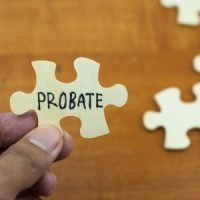How Can You Avoid The Probate Process Completely?

One big benefit of good estate planning is avoiding the time, cost, and intrusion on privacy that often comes from the probate process. But when is probate actually required?
Transfers of Property
As a general rule, any property that can and must pass on its own through operation of law, or which has already been passed while you are alive, do not have to be probated. In theory, if all your property can pass this way, you will never need the probate process.
Take for example, a payable on death (POD) account at a bank. The minute you pass, the instructions on the POD say who gets the assets. There is no need to go to probate for this kind of asset. It will pass immediately and automatically on your passing.
But what if the person who was supposed to get the account—the beneficiary named on the POD—has predeceased you? Now, you have assets in a bank account, a POD account that is invalid, and thus, you have assets that are just “out there” that the probate court has to administer or distribute in accordance with your will, or California law, if there is no will.
Making Changes
You can see how estates and estate plans that are supposed to avoid probate, end up in probate. Things change. The home that you left for your wife in your will now has nowhere to go, if you have gotten divorced before your death, but after the estate plan was drafted. Extra property you acquired after you made your estate plan, has nowhere to go, as it isn’t included in your estate plan. The probate court now has to distribute those assets.
In Your Name
Only property that is in your name, that does not transfer by operation of law, goes to probate. That first part -“in your name”—is an important part of asset and estate planning, because that’s why trusts don’t have to go through probate.
Technically, when you establish a trust, the property is transferred into the trust’s name. You may have some level of control or use of the trust assets (depending on what kind of trust it is), but that property is owned by the trust—not you. Thus, it avoids probate.
Now imagine a scenario where everything you own, has already been transferred into a trust, or else, is scheduled to be transferred automatically to someone else by operation of law or by separate agreement.
There is no property for the probate court to deal with, and nothing that has to be distributed. There is no ability for anybody to challenge your estate or contest a will. This is the essence of estate planning, and this is why and how good estate planning avoids the probate process.
Call the Torrance will attorneys at Samuel Ford Law today for help in avoiding the probate process, and in making sure your estate plan works for your individual situation.
Sources:
courts.ca.gov/8865.htm?rdeLocaleAttr=en
scscourt.org/self_help/probate/property/probate_overview.shtml
